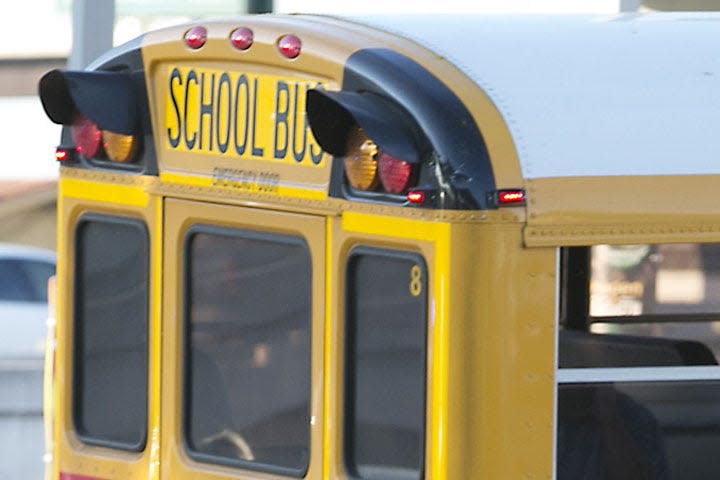Texas school districts worry state rating change will harm campus scores

- Oops!Something went wrong.Please try again later.
About 250 Texas school districts – including some in the Austin area – have signed a letter asking the Texas Education Agency to delay a ratings system change that local officials fear will significantly drop the state-rated scores for many high schools.
The change would raise the bar for how districts measure college, career and military readiness, and some district officials say the move could be another hit to public schools' reputation.
The Austin, Round Rock, Hays, Leander and Del Valle school districts were among the 250 that signed a letter Monday asking the TEA to pause the change. Previously, districts could get an A rating if 60% of its students were deemed ready for college or a career, but the TEA plans to change that threshold to 88%.
The college, career and military readiness score pulls from a swath of student achievements, including Advanced Placement tests or industry certifications, to measure how prepared students are for life after high school.
The letter was addressed to Gov. Greg Abbott, TEA Commissioner Mike Morath and to Sen. Brandon Creighton and Rep. Brad Buckley, chairmen of the House and Senate education committees.
The scores that will be released later this year will pull from data for students who graduated in 2022, which means districts will be graded on factors officials can’t influence anymore, according to the letter.
“It is unreasonable to apply new standards retroactively,” officials said in the letter.
The planned change is irresponsible, the letter states.
“It will cause significant confusion among the community, put increased pressure on teachers and other staff who are already at their breaking point, and wrest the policy decisions of how we should hold our schools accountable away from the elected representatives of the people leaving them in the hands of unelected bureaucrats,” the letter states.
College and career readiness is one factor contributing to a campus’ score, but changing it could mean many high schools drop at least a letter grade, said Carolyn Hanschen, the Austin district's executive director of accountability and assessment.
“The perception of that is ‘I'm doing worse than I was last year,’ but the reality is ‘I'm doing exactly the same or better but the rules have changed,’” Hanschen said.
This change is coming during a year when the state is also introducing a new version of the State of Texas Assessments of Academic Readiness – the state's required standardized test.
“That alone is a good reason to hold off on evaluation of schools in the first year,” Hanschen said.
Those scores matter, said Ana Rush, executive director of academics and accountability for the Del Valle district. Families look at the scores to decide where to send their child to school, and developers use them to decide where new homes will be marketable, she said.
"When we are competing with charter schools and other districts that are open-enrollment, that is one of the biggest things families look at," Rush said.
The changes stem from 2017, when the Legislature overhauled the school rating system to make it fairer. Before the overhaul, the state changed the scoring rubric for schools every year. Now, changes only come every five years.
“I've had many, many educators tell me this is basically the fairest evaluation system the state's ever had,” Morath said during a House Public Education Committee last week.
“We do, in fact, need to continue setting higher goals for our students,” Morath said. “Texas is not currently a leader in preparing students for post-secondary success.”
Schools need accountability, but this change seems like it will do more harm than good, Hays district Superintendent Eric Wright said.
“I don’t disagree with the intended outcome,” Wright said. “I just disagree on how they propose to get there.”
The state, districts and various education-related advocacy groups have long debated the best way to measure campuses and districts.
Many groups and superintendents have argued the state’s focus on scores from the STAAR test place an unfair emphasis on a single test.
Schools do a lot of things, like partner with industries in the community or teach fine arts, that aren't accounted for in ratings for schools, Rush said.
"There should be a conversation about how districts are evaluated and put everything on the table," Rush said.
The change will inevitably make districts look bad in a way that’s often difficult to explain to parents and during a time that public schools are coming under fire, Wright said.
“It’s about dismantling public education and that narrative more so than it is about producing great citizens of the state of Texas,” Wright said.
Other Central Texas districts that signed the letter include Hutto, Lago Vista, Liberty Hill and Taylor.
This article originally appeared on Austin American-Statesman: TEA, state rating change could lower campus accountability grades

